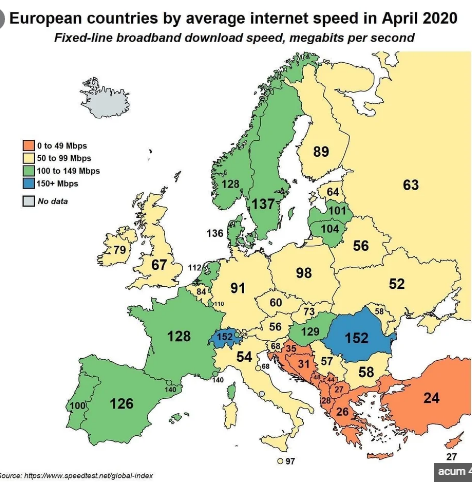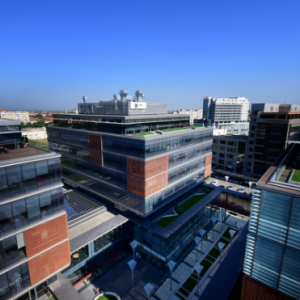ICT stands for Information and Communication Technology. Let’s say, the Internet. ICT is the third pillar in the Global Competitiveness Index issued by the World Economic Forum and is part of the “Enabling Environment” group: the frame that borders the development of a society.
It isn’t easy to think of a period in history in which a sector or activity has been more essential than ICT in the year 2020. The Covid-19 virus has put our societies at test, has restricted movement as never before, and the world has become much more virtual.

People have worked from home, kids have learned from home, conferences and meetings have been online, we have purchased all kinds of products and services entering our favourite supermarket site or other online shops. Even doctors visited their patients and families have been in touch thru the Internet. How could we have managed this situation without the ICT? For sure it would have been much more complicated.
When in Google you dial: “The importance of ICT”, show up more than one hundred ten million results. All areas are touched: transportation, schooling, business, medicine,… Nowadays, all is designed to work online. Our world, as we know it, would collapse without this technology.
A company or country cannot be competitive without ICT. Despite this, the speed and capacity of the Internet, in different countries, shows huge and surprising differences:

Some enormous investments will raise Internet speed everywhere. We will rely on data transmission even for things that we always expected to do ourselves, like for instance driving a car (The car of the future is connected, autonomous, shared, and electric). The local nets will have to be strong enough to cope with the situation.
All kinds of technologies will infiltrate in all aspects of our life. This reality is not free of controversy. Do we want to be fully controlled in exchange for security and a more comfortable life? Much has been written in this regards, for instance this EU report, but the conclusion is far from being definitive.

Of course, thanks to technology, we can find quick responses to our problems. We know now, after just few months from the Covid-19 outbreak, that closing schools was one of the most effective measures to stop spreading the virus (pag 263 on, Lockdown strategies, mobility patterns and Covid-191 Nikos Askitas, Konstantinos Tatsiramos and Bertrand Verheyden). This conclusion means that, given any future new risk, schools and universities will be quickly closed. Most probably, they will even change their obligation of presence in normal circumstances (no evidence of a virus around), once tried and proved that tuition could be equally effective. But not only schools and universities will see changes. In the coming months, maybe years, we will travel less for work reasons, we will visit shops more rarely, we will gather less eagerly in crowded events. An online presence will replace our physical presence, mainly there where we do not find a pleasure to be.

ICT is not an option. We cannot easily imagine competitiveness without the Internet unless what we are looking for is to escape from the frenzy times in which we are living. I have to confess that sometimes I feel tempted, but to many, this possibility cannot be considered. More ICT equals more possibility of activity which equals more competitiveness. The fact that countries such as the UK, Italy or Germany offer such poor internet services is not only difficult to understand; it is also an impediment for their companies and citizens to adapt to new times in an area in which nobody can afford to be left behind.





